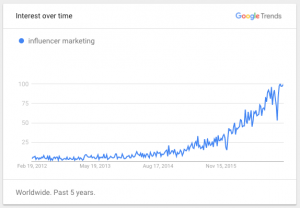
Employees are the lifeblood of an organization. However, when it comes to small business hiring, the impact of one employee – whether positive or negative – resonates with the entire organization, including co-workers, managers, and owners.
Best-in-class companies of all sizes realize planning ahead can mean the difference between hiring an employee who drives growth in the business, and hiring an employee who inhibits it. However, for small and medium-sized businesses, reaching a point where implementing pre-hire assessments that are seen as cost-effective can be challenging.
Pre-hire assessments can demonstrate strong ROI in many aspects of the performance of small-business employees, including productivity, quality of service, customer satisfaction, employee engagement, and sales. However, SMB organizations face several unique challenges when implementing a pre-employment talent assessment program.
3 Common Assessment Implementation Challenges for Small Businesses
When it comes to implementing pre-hire assessments, there are a few common struggles most organizations face, even when an overhaul of the talent acquisition process is necessary to help improve the business:
- Financial limitations: By virtue of their sizes, small and medium-sized businesses must make every dollar stretch. Budget constraints are one of the toughest and most common challenges facing pre-employment test implementation. Without the ability to put the necessary resources into pre-hire assessments, small and medium-sized businesses will only realize a small portion of the benefits that can be generated from pre-employment test data.
- Lack of executive buy-in: Most HR managers realize the full potential of pre-employment testing not just in the talent acquisition process, but in the talent development and retaining process as well. Unfortunately, these managers have a difficult time getting their upper-level colleagues to jump on board. This lack of full support from the decision-making powers of the business has the potential to halt, or greatly limit, the comprehensive usage of these assessments during the hiring process.
- ROI nearsightedness: Most organizations of any size equate positive ROI with success. In essence, the greater return on investment a business process provides the more successful it is thought to be. Many of these same organizations, however, fail to look at the bigger picture and to all the benefits pre-employee test assessments offer, including a more productive and engaged workforce, higher retention rates, and increased customer satisfaction.
These challenges of hiring for small businesses oftentimes prevent SMBs from utilizing any type of pre-employment test or it greatly limits the influence these assessments have in the talent acquisition process. When hiring staff for small businesses, the important thing is to identify these challenges and then create a well-developed hiring process that will overcome these obstacles, and provide the greatest benefit to the company.
Overcoming SMB Hiring Challenges Starts with Communication
Understanding and communicating the challenges of pre-employment test implementation is the first step to overcoming those challenges. The second is to demonstrate the value that pre-hire assessments bring to the talent acquisition process and revenue growth of your company.
Additionally, according to one ADP report, small businesses (49 employees or less) created 79,000 jobs in January of 2016. With an increasing number of growing small businesses, it is essential to leverage the hiring best practices of best-in-class organizations. Chances are if you’re not using assessments, your competitors will be soon, if they aren’t already.
Identify the Full Benefits of Assessments in Hiring Staff for Small Businesses
When it comes to getting leadership on board with pre-hire assessment implementation, it is crucial to outline the full benefits of using pre-hire assessments in your talent assessment strategy.
All of these elements are crucial in building a workforce capable of growing your small business. For instance, if your business is struggling to retain customers, it may be due to a communication breakdown between your representatives and your patrons.
When making the case for pre-hire assessments, you will be in much better shape when you can speak to your executives in the language they understand the best: return on investment.
Determining the value of an assessment means tying the results to the test itself. This means taking the time to conduct a job analysis and validation process. This can be done by working with consultants to evaluate essential duties and behaviors required to perform well in any given role.
While one bad hire doesn’t make or break the performance of a large organization, the impact of a single employee on the success of a small business is monumental. By integrating assessments during and after the small business hiring process, these solutions can provide immense value for small businesses.
Business & Finance Articles on Business 2 Community(56)
Report Post




